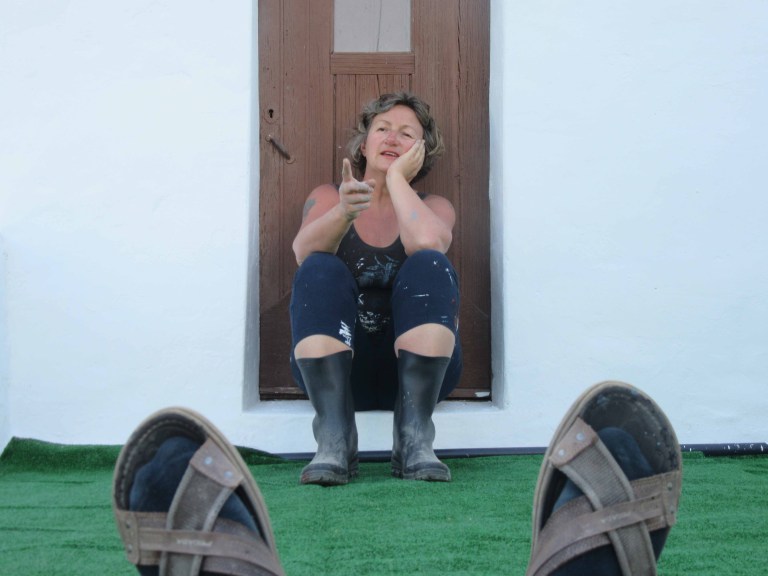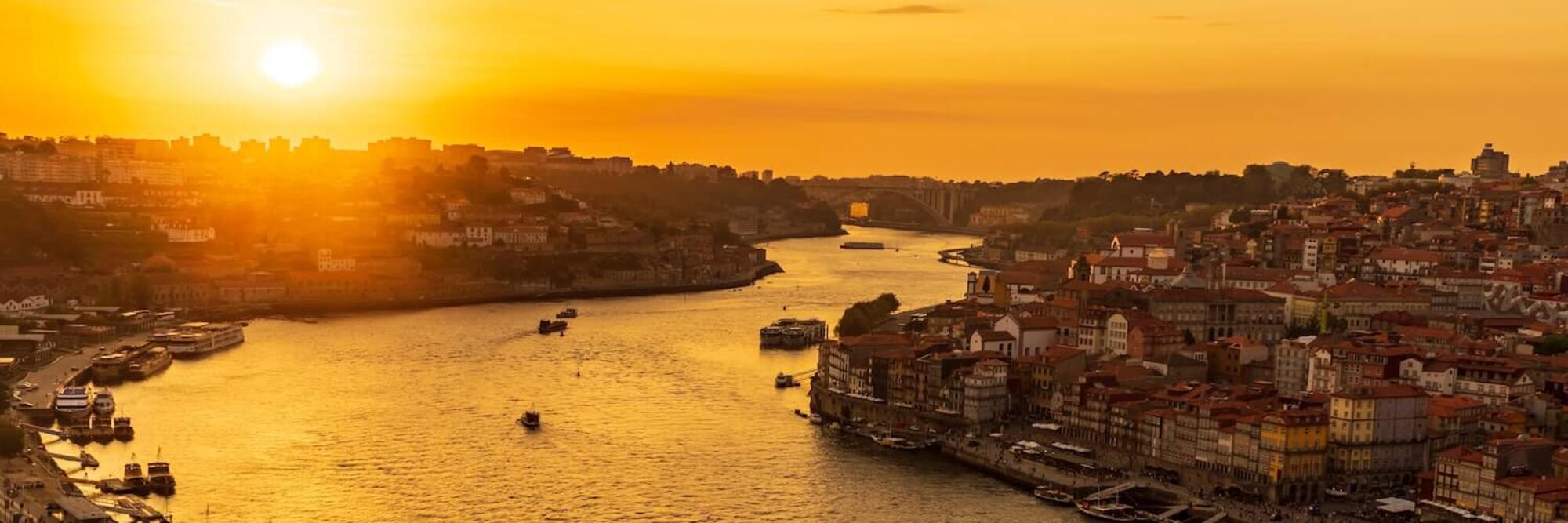Sarah Hendrickx is a British expat living in the Algarve with her partner, Keith. She is a freelance writer and author of six books who sought out a quiet life in the rural hills of Portugal, where she can cycle in the sun and eat breakfast outdoors in January. Sarah's blog, Bicycles and Biscuits, follows their trials and tribulations as they attempt to tame geckos, eat 25 lemons and join in with Portuguese life.
Read more about Portugal in the Expat Arrivals Portugal country guide, or read more expat experiences in Portugal.
About Sarah
Q: Where are you originally from?
A: I'm from the South East of England, but have lived all over the country. I was last based in Brighton.
Q: Where are you living now?
A: I live in the hills of the Eastern Algarve, about 8-12km north of Tavira.
Q: When did you move to the Algarve?
A: February 2015.
Q: Did you move here alone or with your family?
A: I am here with my partner, Keith. Kids grew up and left home, and we legged it before they could come back.
Q: Why did you move; what do you do?
A: We had always planned to live overseas, as we like cycling but hate getting wet, which makes it a rubbish hobby to have in the UK. We have had houses in France and Morocco, and we were working towards a carefully planned long-distant move when life took things into its own hands. Within the same week in 2014, Keith was offered voluntary redundancy and I was diagnosed with a potentially life-threatening/quality-of-life-reducing genetic kidney disease. We suddenly realised that we may not have as much time as we expected and decided to do it now. So, here we are: with no plan. Best thing we ever did. Keith took redundancy, and I run my autism training business part remotely and part in the UK (Keith does the admin for the business) to keep us in oranges. I also write for a number of magazines and websites on a freelance basis, and then there's the blog…
Living abroad
Q: What do you enjoy most about Portugal? How would you rate the quality of life compared to the UK?
A: Oh, we love it here. I travel a lot for my job, and the UK's roads have become increasingly crowded over the years. Here, you can get from A to B without sitting in traffic and losing the will to live on a daily basis. I love the markets, the fresh vegetables and how nice and laid-back the people are. I feel like a different person in Portugal: happier, lighter, and not stressed. We love the quiet, the birds, the beautiful countryside; all of it.
Q: Any negatives? What do you miss most about home?
A: A decent biscuit.
Q: What are the biggest adjustments you had to make when settling into expat life here? Did you experience any particular elements of culture shock?
A: I can't think of anything. I read a lot of blogs written by other people who had moved here, so knew it would be slow and bureaucratic, but… and I may be tempting fate here… we haven't had any problems getting things done.
Q: What's the cost of living compared to the UK? What is cheap or expensive in particular?
A: It is considerably cheaper here for better food. We buy everything from the local market and eat so much better, partly because I have the time to prepare it. Cars are very expensive in comparison to the UK. We currently bring our UK car here for six months in the summer when car hire is expensive and hire cars in the winter when they are very cheap (£2 per day).
Q: How would you rate the public transport? What are the different options? Do you need to own a car?
A: We need a car because we are in such a rural location. If you live on the coast, there are buses and a wonderful train line which hugs the beach in places. You could always cycle, as it's flat along the coast, and the Ecovia Cycle Trail runs over 200km along the Algarve coast from Spain to the western tip near Sagres.
Q: How would you rate the healthcare in your city? Have you had any particularly good/bad experiences with regards to doctors and hospitals? Are there any hospitals you would recommend?
A: I have only needed to see a doctor once and was able to walk straight in and see someone with no appointment and no wait. It felt far less rushed and more attentive than my recent UK GP experiences.
Q: What are the biggest safety issues facing expats living in Portugal? Are there any areas expats should avoid?
A: Albufeira at night! But that's only to avoid the other drunk northern European holidaymakers. It feels very safe here.
Q: How do you rate the standard of housing in the city? What different options are available for expats?
A: Housing is good and relatively cheap. There are apartments, townhouses and villas to rent or buy in Tavira, our local town, or old ruins and villas out in the countryside. We live in a tiny traditional house with doorways so low that we bang our heads on a daily basis. There are winter lets for longer rentals at low prices to allow you to get a feel for the place. The countryside is very rural with no facilities apart from the odd bar – and some of them are very odd!
Q: Any areas/suburbs you'd recommend for expats to live in?
A: Tavira is a great town, really pretty with a local feel to it. It is definitely not a resort, although it has plenty of restaurants for tourists. It's lovely to wander along the river on a summer evening knowing that most of the people around you have to go home after a week or two, and you don't. Smug, that's us.
Meeting people and making friends
Q: How tolerant are the locals of foreigners? Is there any obvious discrimination against particular religions or women, etc.?
A: We have found people overwhelmingly friendly despite our limited Portuguese (which we are learning). In the countryside, traditional gender roles apply, and the bars are mostly full of working men, but if you show up regularly and inflict terrible Portuguese on them, the local population get used to your face and see that you wish to interact. It's basic, but it's a start. I got asked to dance by a local gentleman at our village dance recently (he quickly abandoned me after realising that I was useless), so that felt like a step towards acceptance, or ridicule, one of the two.
Q: Was it easy meeting people and making friends? How did you go about meeting new people?
A: It is difficult to meet Portuguese people when you have no language, no shared history and no job. We go to our local bar, but are aware that the people in the rural community have many decades of shared lives and that integration will take many years. We have met people through our interest in vegetable growing through sites such as Workaway and WWOOF, where labour is exchanged for meals. We do not frequent the usual expat hangouts, partly because most people are a lot older than us and have a different take on life.
Q: Have you made friends with locals, or do you mix mainly with other expats? What advice would you give to new expats looking to make friends? Any social/expat groups you can recommend?
A: There are plenty of expat activities in Tavira, from walking groups to creative writing classes. We mainly spend our time alone together, but have a few expat friends. Without being more fluent in Portuguese, we cannot develop friendships with native speakers, but I hope to.
About working in Portugal
Q: Did you have a problem getting a visa or work permit? Did you tackle the visa process yourself, or did you enlist the services of an immigration consultant?
A: As we are in the EU (currently), this wasn't an issue.
Q: What's the economic climate like in the city? Do you have any tips for expats looking to find a job there? Which resources did you find most useful?
A: Portugal is in a financial mess. The rate of pay is low and unemployment is high. Unless you are fluent, skilled, or both, employment in the Algarve is likely to be limited to tourism, if anything.
Q: How does the work culture differ from home? Do you have any tips for expats doing business in Portugal?
A: It seems to be a lot more relaxed, and many businesses don't seem to have caught on to the idea of the internet.
And finally…
Q: Is there any other advice you would like to offer new expat arrivals?
A: The same as everyone else says, but hardly anyone does: learn the language. Despite the fact that most younger Portuguese people speak fluent English, not speaking Portuguese will make some transactions and social interactions difficult. Without the language, you will always be an outsider.
~Interviewed April 2016



